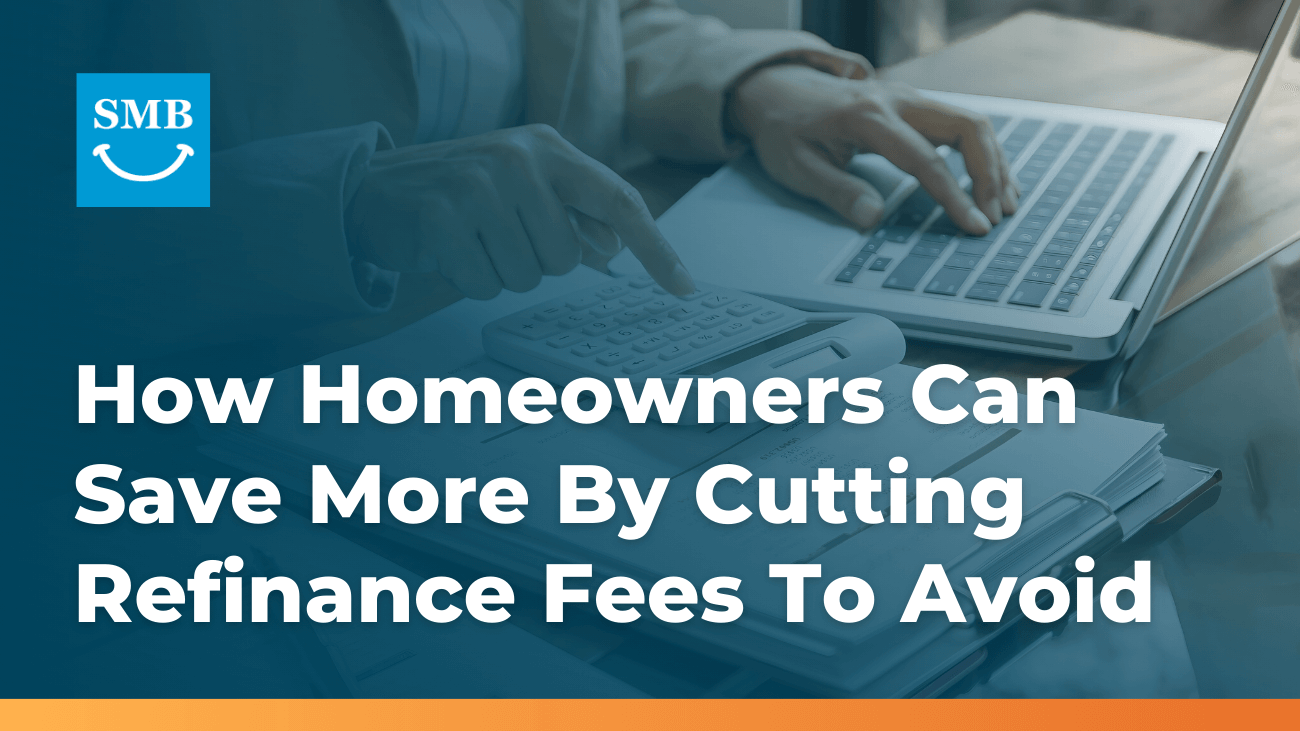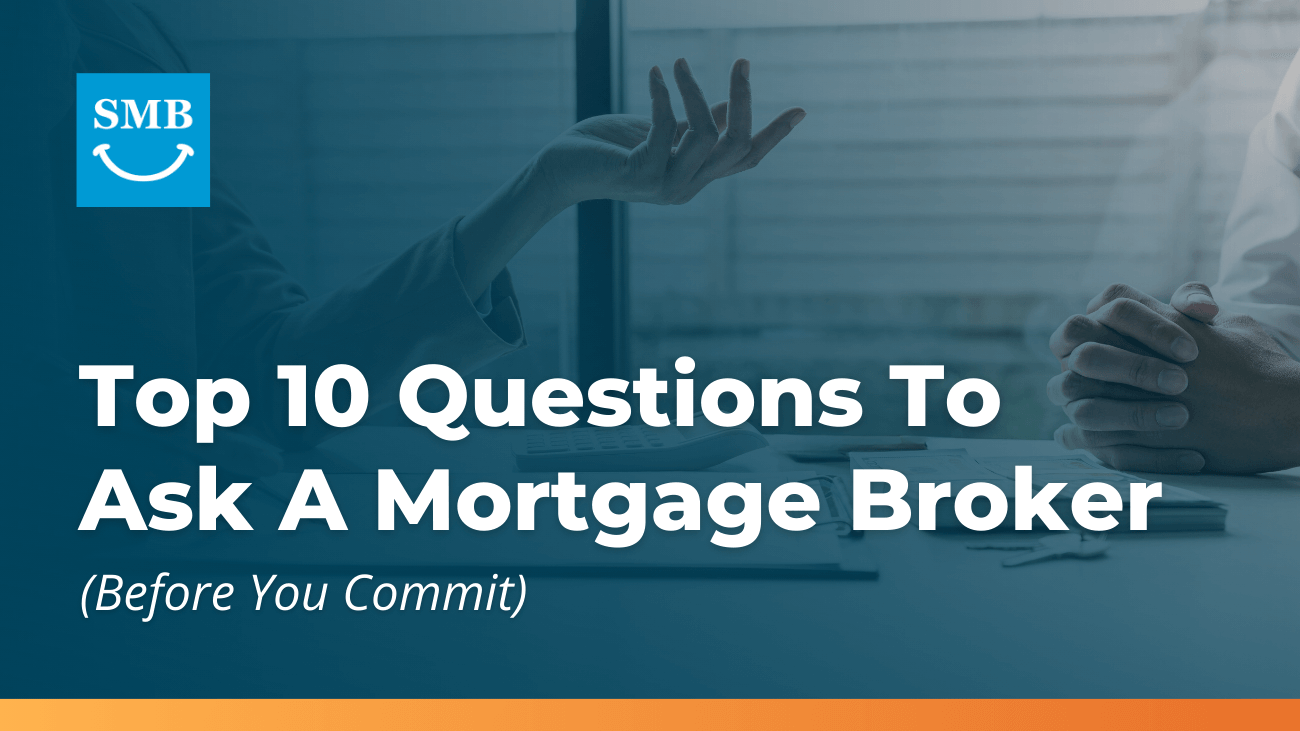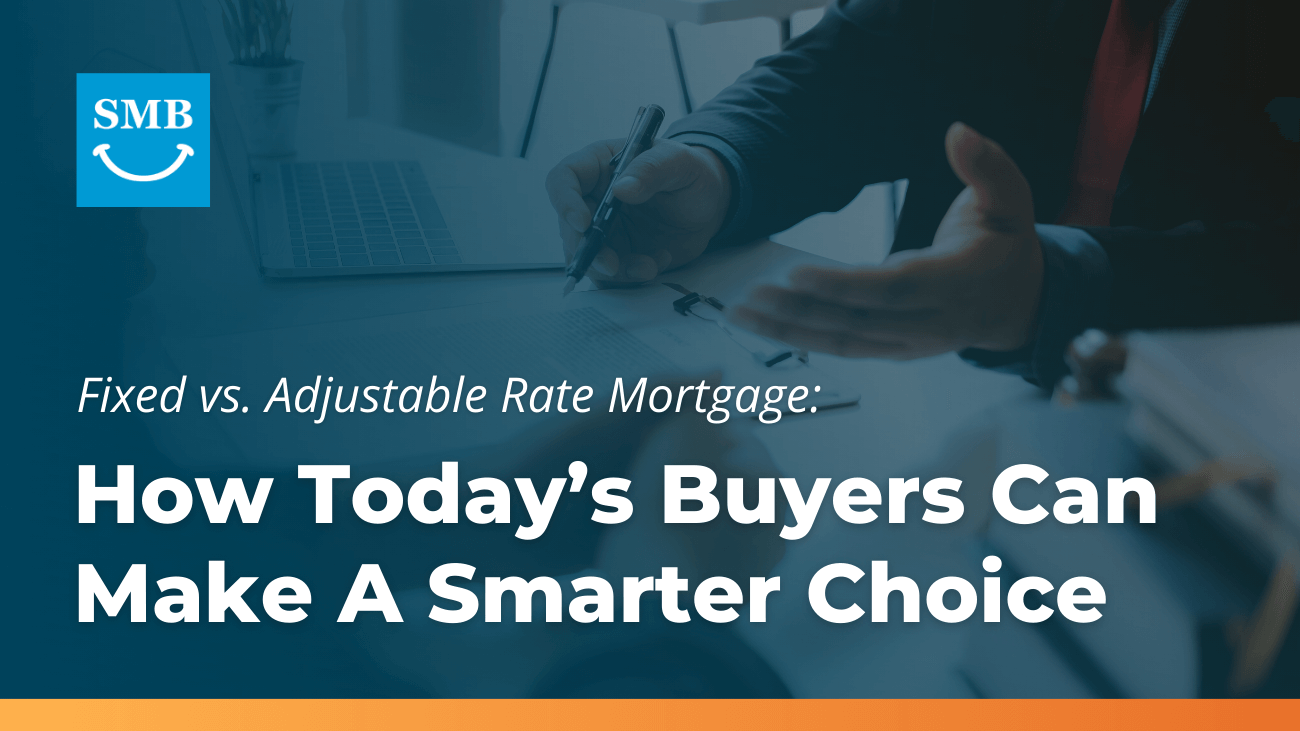7 Common Myths About Home Loans

For the average American, buying a home is one of the top items on a bucket list. Buying a home means putting down roots in what might be the largest purchase you'll ever make.
Before you decide buying a home is out of your league, let us help you separate mortgage facts from myths so that you take the proper steps to secure your first mortgage loan.
Myths usually come from a combination of misinformation and self-doubt. Avoid these seven top excuses created by common mortgage myths.
1. I can't get a mortgage, I have student loans
You can't throw a rock in the US without hitting an American with student loans. Over 44 million Americans have student loan debt adding up to trillions of dollars.
Still, more than half of Americans own a home. Student loan debt is no barrier to getting a mortgage loan on its own.
Yes, paying off debt is a great sign you can manage a loan payment responsibly, but it is an unrealistic requirement for everyone who applies for a mortgage. Mortgage brokers look at your overall debt to determine how much house you can afford.
Instead of worrying specifically about your student loans, consider your overall debt-to-income ratio. Mortgage lenders use this ratio to determine whether you are a high risk for foreclosure.
The best debt-to-income ratios fall below 43 percent. This means that your total monthly debt payments--including credit cards, student loans, car payments--equal less than half of your monthly income.
Some lenders allow up to a 55 percent debt to income ratio. Guard against entering a mortgage with this much debt. The lower your monthly debt, the more you'll have available to take care of unforeseen house expenses each month.
If your student loan can be restructured to create a lower payment before you shop for a mortgage loan, you have a better shot at getting approved for a mortgage.
2. I haven't saved enough money
One common excuse to not buying a home is not having enough money saved. This is because conventional mortgage wisdom says buyers need to put down 20 percent on a loan.
There are a variety of loans including FHA, or Federal Housing Administration, that allows you to put down less than 10 percent on a mortgage. If you meet the minimum credit score requirements for FHA, you can put down as little as 3.5 percent on your mortgage loan.
FHA loans are offered through a wide variety of mortgage lenders in 15- and 30-year products. These loan types are popular for first-time homebuyers and homeowners with lower income.
The downside to purchasing a new home using an FHA loan is that you are required to pay annual mortgage insurance. This amount is typically 1.5 percent of the overall balance of the loan.
Private mortgage insurance is required for any loan where the buyer puts down less than 20 percent. When shopping for a loan, request information on loan programs that allow you to put down less than a conventional loan.
Compare the annual cost of private mortgage insurance to your ability to save long term. If you can't realistically save 20 percent in the next decade (plus what the house would appreciate by), it might be worth considering making smaller Private Mortgage Insurance payments each year depending on the growth of your neighborhood.
3. Shopping for a loan hurts my credit score
Whenever your credit is pulled for a loan, your score can take a (small) hit. But shopping for loans in the same category won't cause your score to lose points.
As long as you shop for lenders within 14 days of your first inquiry, your score won't be affected. Avoid applying for any new credit while getting preapproved for a mortgage loan.
Trying to buy a new car or open up a new credit card not only means lowering your score but potentially sabotaging your approval process. Lenders frown upon new debt while they are vetting you as a potential borrower. Save your new car purchases until after you get a mortgage loan.
Auto loans are some of the easiest to acquire (and negotiate). You don't run the same risk of shooting yourself in the foot by waiting until after you secure a mortgage.
4. My credit score isn't good enough
Great credit scores get you the best terms on home loans for your particular situation. This fact doesn't mean you shouldn't apply for a mortgage loan.
Most lenders consider FICO scores under 640 high risk, but with a score as low as a 580, you can qualify for an FHA mortgage loan. No matter your credit score, don't assume you have to settle.
A low score limits your options but doesn't eliminate them. Shopping around for the best mortgage terms means connecting with more than one lender to get the rate you want.
If your desired payments are completely out of reach right now, you can always refinance once your credit score improves over time. Keep in mind that there are no permanent loans in the mortgage industry.
A mortgage loan is a product. If you don't like how your current product affects your finances, you can take steps toward getting a better deal that suits your financial goals.
5. I'm preapproved so I got the house
Getting preapproved for a mortgage loan is an important first step in home buying. The emphasis here is "first" step. Many realtors encourage clients to get preapproved to see how much house they can afford.
There is more to affording a house and getting a home loan that the initial preapproval application. Loan underwriters look into your financial habits, legal standing and income to determine whether you qualify for a home loan.
Length of employment could cause a loan denial even if you earn a high income. Shopping around is key.
A dealbreaker with one lender isn't necessarily a dealbreaker with another. Consider yourself on a marathon when you begin the approval process for your dream home.
Look for multiple resources to qualify for the loan you need to secure the property before it goes back on the market.
6. I don't need to get preapproved because I got prequalified
Getting prequalified for a loan takes minutes. Answer a few questions online, and you receive an estimate of how much house you can afford and what a potential rate could be.
Prequalification is an acceptable final step when you aren't serious about buying a home but are curious to how much you may be able to purchase. Before talking to a realtor or making an offer on a home, it's important to get preapproved.
The preapproval process isn't a final step either, but it is far more involved than getting prequalified. During the preapproval process, the lender vets your financials to give a more accurate picture of the range of houses within your budget.
Remember prequalification is great for general research. As you become serious about buying a home, you need to get preapproved.
7. I already know I can afford a mortgage loan because I make a lot of money
Income is one of several factors that determine your ability to qualify for a mortgage loan. Don't assume that earning a lot of money each year solves all your mortgage problems.
Carrying lots of debt or a poor credit score can be signs of high risk to a lender. If you've made some poor financial decisions recently, give yourself time to begin making on-time payments or reduce debt before getting preapproved.
Your high income can grant you access to the home of your dreams as long as you show good habits and the proper management of debt. Unlike low-income borrowers, you have more choices in how to manage the money coming in which gives them a peek at how you'll treat your future mortgage.
More Than Just Mortgage Facts
Shopping for a home can be stressful when you aren't making decisions from mortgage facts. Banks offer mortgage products to help fit the needs of specific demographics they want as customers.
If a lender doesn't approve you for a mortgage loan, it isn't necessarily a reflection on your financial situation. You might not be the best fit for that lender. Getting approved doesn't even mean you have to use that same lender.
Explore your options by researching lenders nationwide who have mortgage resources available to help you land your dream home. Remember you are the customer shopping for a product.
Take charge of your mortgage search by setting goals on the terms you want and vetting lenders as much as they are vetting you. If you're ready to take that first step to get a mortgage that works for you, click here.
At Seattle's Mortgage Broker, we specialize in Washington Real Estate, we will help you find lenders with experience and integrity.


The Ultimate Guide to the Best Suburbs of Seattle

Should You Use a Mortgage Broker? Everything You Need to Know First

How to Find the Right Neighborhoods in Seattle for Your Budget and Lifestyle

Warrantable vs. Non-Warrantable Condos: What Every Buyer Needs to Know Before Financing

How Much Does It Cost to Refinance a Mortgage in Seattle? A Homeowner’s Guide
.png)
How Often Can You Refinance Your Home?
.png)
The Complete Guide to For Sale By Owner (FSBO) in Seattle

10 Questions Every Seattle First-Time Home Buyer Asks

What is a Non-Warrantable Condo?

Ultimate Seattle Mortgage Loan Documents Checklist

Your Complete Guide to Seattle Property Tax

Why You Should Work with a Mortgage Broker

Where to Find the Best Local Mortgage Broker

Where Are The Best Places To Live In Seattle?

What’s the Best Way to Save Money for a House in Seattle?

When is the Best Time to Refinance a Home?

What is the Jumbo Loan Limit in Seattle 2020?

What You Need to Buy a House in Seattle

What Is a Jumbo Loan and will you need one when moving to Seattle?

What is the Jumbo Loan Limit in Seattle?

What Is A Non-Warrantable Condo?

What is the Best Down Payment Amount on a House in Seattle?

What is PMI Mortgage Insurance? And Why It Is Not As Bad As You Think

What Is A Cash-Out Refinance?

What do Home Loan Underwriters Look For?

What Down Payment Do I Need for a House?

What Are The Costs of Buying a Home?

What Are The Best Neighborhoods In Seattle For Families?

FAQ: What Are the VA Home Loan Requirements?

WEST SEATTLE JUNCTION ; Seattle Neighborhood Tour

What are RSUs and How to Spend Them

Understanding Mortgage Down Payments

Top 5 Seattle Suburbs to Buy In 2021

Understanding Down Payments in Seattle

The Ultimate Mortgage Document Checklist

Top 10 Questions To Ask A Mortgage Broker (Before You Commit)

The Worst First-Time Homebuyer Mistakes

The Top 5 Seattle Suburbs for 2020

The Best Seattle Neighborhoods in 2020

How to Find the Best Mortgage Refinance Companies in Seattle

The Best Seattle Neighborhoods for Families

The Best Neighborhoods in Seattle to Buy a Home

The 7 Best Seattle Suburbs for Families

Seattle Neighborhood Guide: The Top 10 Most Affordable Places To Live In Seattle

SOUTH LAKE UNION ; Seattle Neighborhood Tour

Seattle Summer Housing Market Guide 2020

Seattle Housing Market Update 2020

Seattle Housing Market Hacks

Save Money When Buying a House in Seattle

Save Money on Your Mortgage Refinance

Moving to Seattle with a Family? Here's the BEST Suburbs For You!

Refinancing To Reduce Your Bills and Increase Available Cash

Neighborhoods in Seattle to Buy a Home 2020

Real Estate Trends in Seattle

Mortgage Down Payments in Seattle

MAGNOLIA ; Seattle Neighborhood Tour

Mistakes to Avoid with Cash-Out Refinance

How to Refinance Your Home in 9 Steps

Jumbo Loan Limit vs Conforming Loan Limit in Seattle for 2021

KIRKLAND ; Seattle Neighborhood Tour

Jumbo Loan Limit in Seattle for 2021

ISSAQUAH ; Seattle Neighborhood Tour

Is My Credit Score Good Enough to Buy a House?

How to Buy a House; Home Buying 101

How to Lower Your Monthly Mortgage Payment

How to Get the Best Rate for Your Home Loan

How to Buy a House for Less

How Much Home Can I Buy in Seattle?

How Much Do You Really Need for a Down Payment in Seattle?

How Much Home Can I Afford?

Home Price Forecast for Seattle 2020

How Hot is the Seattle Real Estate Market?

How Hot is the Seattle Real Estate Market in 2022?

Home Inspection Questions You Need to Ask

Do You Need a Realtor to Buy a House in Seattle?

FHA vs. Conventional Loan: Which Mortgage Is Right for You?

Find the Best Mortgage Lender for Your Home Loan

Federal Housing Administration Loans 2021

Down Payment Requirements in Seattle

FACTORIA and SOMERSET ; Bellevue Neighborhood Tour

Everything you Need to Know About Seattle Jumbo Mortgages

Everything You Need to Know About VA Loans

Advice To A First Time Home Buyer: Down Payment Assistance Programs Exist for Millennials

CROSSROADS ; Bellevue Neighborhood Tour

Down Payment 101: How Much Money Do I Need to Buy a House?

COVID-19 Mortgage Help for Homeowners

Comparing ARM vs. Fixed Rate Mortgage

Can I Afford To Buy A Home In Seattle?

Choosing the Best Lenders for Home Loans

How to Use Restricted Stock Units to Buy a Home in Seattle

ARM v. Fixed Mortgage: Which is Right For You?

Ballard or Queen Anne? The Best Neighborhoods of Seattle to Buy a House

Avoiding the Worst Seattle Mortgage Lenders

Are You Buying a House in Seattle? Here’s the Ultimate Survival Guide

Fixed vs. Adjustable Rate Mortgage: How Today’s Buyers Can Make A Smarter Choice

ALKI BEACH ;; A Seattle Neighborhood Tour

A Complete Guide to Refinancing Your Home Loan

8 Ways to Lower Your Mortgage Payment


















